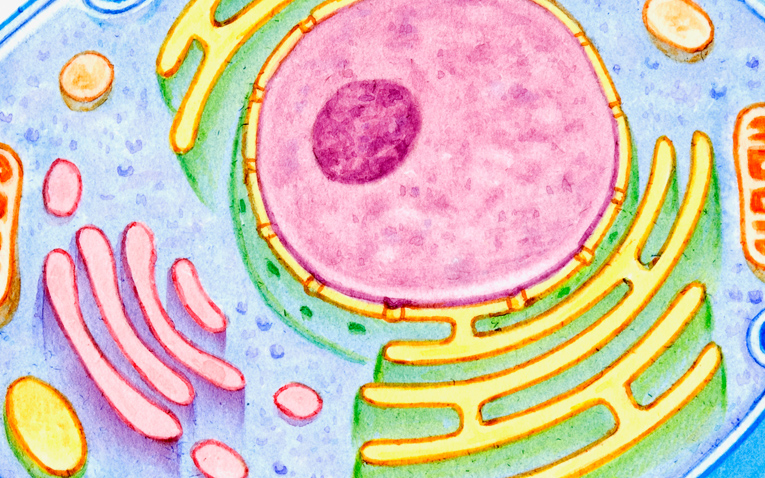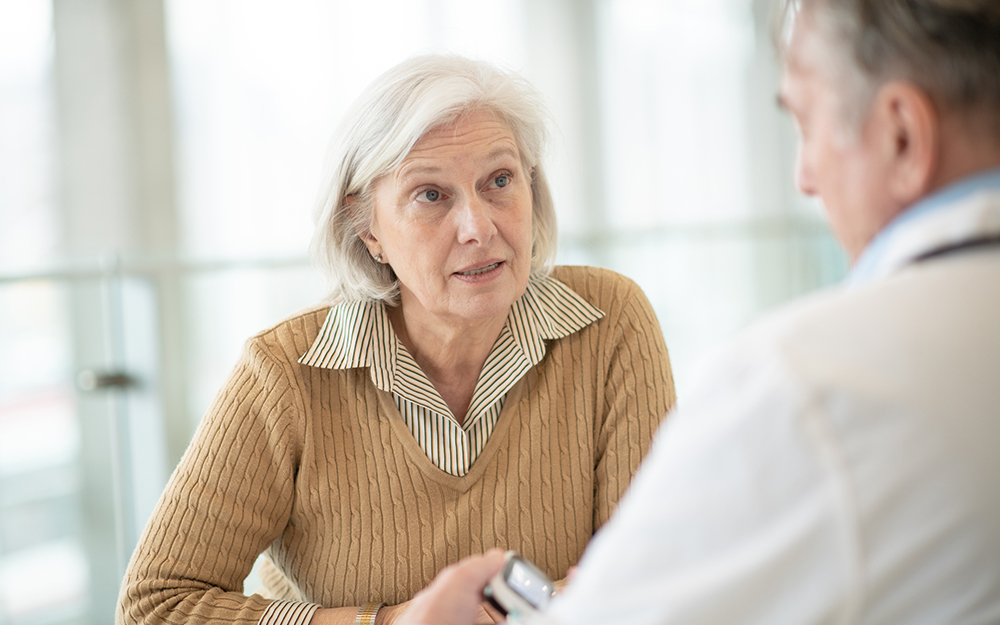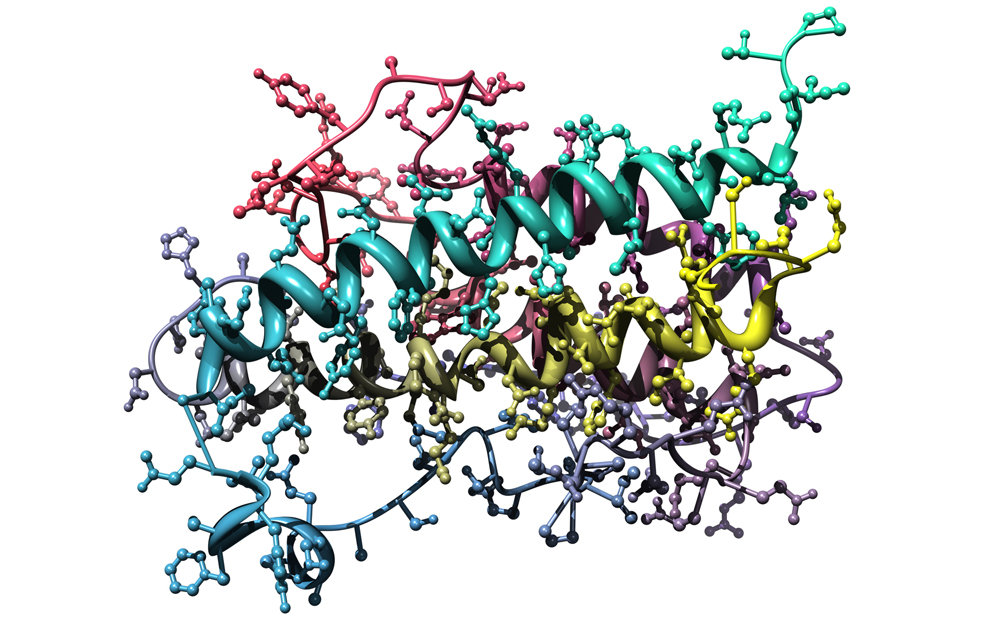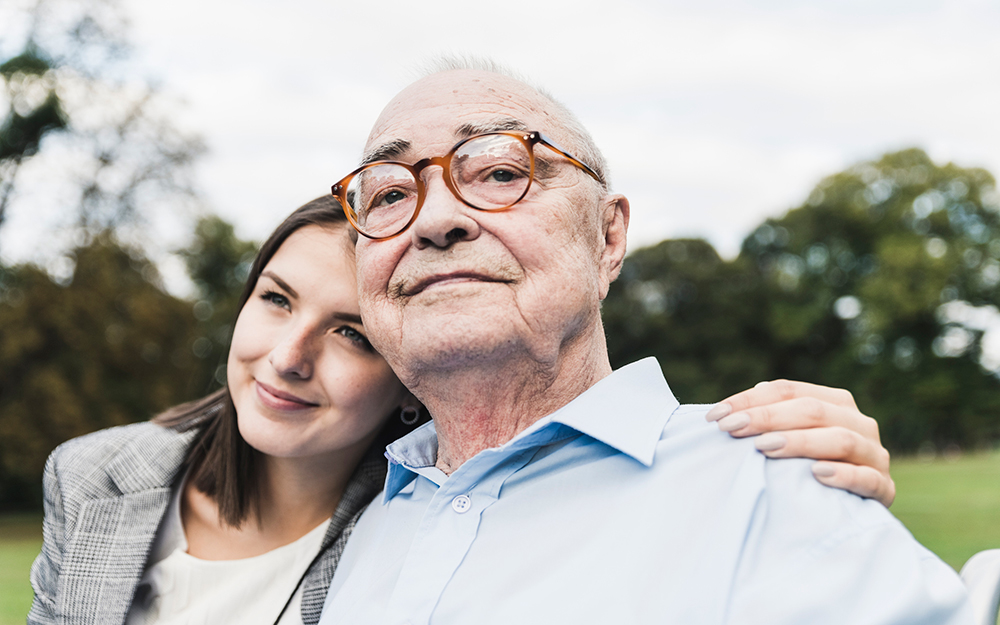Autophagy: Recycling Is Good for Your Body Too
Date
April 16, 2019

Date
April 16, 2019
Credits
Medical providers featured in this article
In Brief
{{cta-block}}
Taking out the trash is an important chore. Imagine trash overflowing in your kitchen, attracting pests, and inviting mold and bacteria to grow.
It's just as important for our cells to clean themselves out and clear away debris. It's a process most of us don't think about—and haven't even heard of—called autophagy (which means self-eating).
"I'm interested in the idea that fasting once a week might be sufficient and manageable to help you live a longer life or extend your number of healthy years."
"Parts of our cells become damaged, and that's the garbage," says Dr. Roberta Gottlieb, director of Molecular Cardiobiology at the Cedars-Sinai Smidt Heart Institute.
"Our cells chew up that material and recycle it. That's how they take out the garbage."
You might say it's Dr. Gottlieb's favorite body process. She's composed poems about it. An artistic rendering of the process is her laboratory's unofficial logo.
Her lab has developed new ways to monitor this process in action, so we asked her what her research might mean for patients.
When does autophagy happen?
Autophagy happens while we're sleeping—because that's when we're fasting.
"If you eat a 30-inch pizza before bed, you're not going to have any autophagy," Dr. Gottlieb says.
"That means you're not going to take out the trash, so the cells begin to accumulate more and more debris."
Autophagy can also be induced by certain medications.
"If we can get autophagy in motion shortly after the heart attack, we can reprogram the heart to have some beneficial remodeling rather than long-term damage."
Why does it matter?
Clearing away damaged parts is essential for keeping cells healthy and in good working order.
If junk builds up in the cell, it can permanently tweak the cell's genes, making it difficult or impossible for the cell to repair itself and regrow the structures it needs to survive and thrive.
While some cells only last in your body for a few days, others are with you for a lifetime.
Two especially important types of cells don't turn over much and are with us for decades, so it's important that they stay healthy: neurons (which are in our brains and other parts of the nervous system) and cardiomyocytes (which make up our heart muscle).
What are autophagy diets?
If you search online for "autophagy," most of the results turn up fad diets. Like many fad diets, there's a grain of truth to them.
However, there's no conclusive evidence to suggest any specific diet optimizes autophagy and will unlock the secret to a perfect beach body.
What do we know about autophagy diets?
Reducing calories and fasting prompts your cells to ramp up the cleaning process.
One well-known study found that rats who ate a high-fat diet but could only eat 8 hours out of the day didn't develop the same health concerns as rats who ate the same amount of food but could eat any time they wanted.
In a past study that Dr. Gottlieb supervised, 10-month-old mice—the equivalent of human 20-somethings—went without food twice a week to trigger autophagy. After 6 weeks, they had gained weight at the same rate as their non-fasting counterparts.
When they reached a ripe 24 months, the autumn of their mouse years, their immune cells were studied. They had more youthful immune systems and recovered better from heart attacks than the non-fasting mice.
"They were also friskier and had shinier, healthier fur," she says. "The bottom line is they were younger in many different ways."
Different ways to fast
Fasting tends not to be practical because it's not tolerated well for very long.
"I'm interested in the idea that fasting once a week might be sufficient and manageable to help you live a longer life or extend your number of healthy years," Dr. Gottlieb says.
"Or there might be something to not eating after a certain time of day and stretching out your nightly fasting period."
"Right now, we know going 16 to 24 hours without nutrients is beneficial in animals," she says.
"But we don't know much about humans. We would love to figure out what kind of fasting helps and also what role exercise has in driving autophagy."
Recycling your way to better health
Dr. Gottlieb and her fellow researchers are looking at how autophagy can help protect the heart after heart attacks. A heart attack triggers a series of changes in the heart cells that cause damage over the course of months or years.
"If we can get autophagy in motion shortly after the heart attack, we can reprogram the heart to have some beneficial remodeling rather than long-term damage," she says.
This is still in the basic science phase, but she thinks it could help humans in the future.
The best part? No one would have to fast. There are already multiple medications that trigger autophagy.
"One of the reasons we started looking at this is because we've seen that patients on some of the newest types of anti-diabetes drugs have better heart attack outcomes than patients not taking the drugs," Dr. Gottlieb says.
More to come
Scientists are examining the role autophagy plays in diseases such as cancer and neurodegenerative diseases.
Sometimes autophagy can protect the body against diseases, other times it seems to make them worse. Up next for Dr. Gottlieb is exploring whether it plays a role in Alzheimer's disease, a project she's working on with Dr. Susan Cheng.
She's also working with Jennifer Van Eyk, PhD to understand if all drugs that induce autophagy affect cells in the same way or if some only clear out certain kinds of junk. Ideally, doctors would be able to choose a drug that can target only the junk they want to get rid of.
In yet another collaboration, she's joining forces with Dr. Moshe Arditi and Dr. Fayyaz S. Sutterwala to explore the link between autophagy and inflammation.





